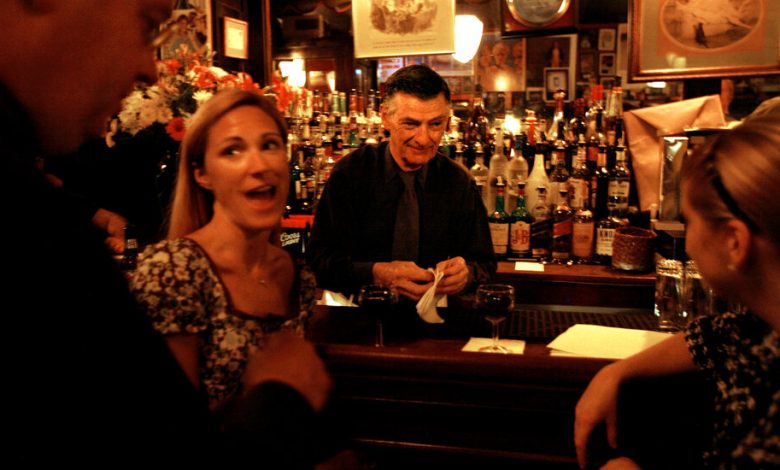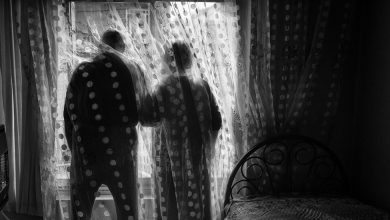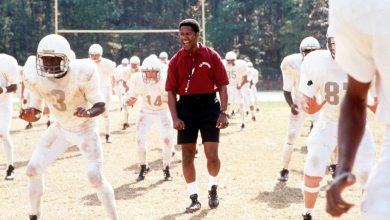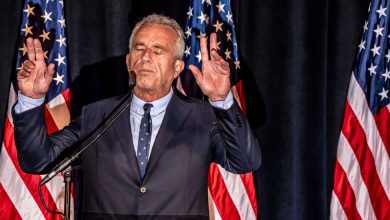Thomas Carney, Crusty Bartender at Elaine’s, Dies at 82

Thomas Carney, who served stiff drinks, hard-boiled humor and rough justice for three decades as the bartender in chief of Elaine’s, a saloon that furnished an improbable gathering place for New York’s writers, actors, athletes, models, power brokers, journalists, police officers, gangsters, playboys, go-getters and countless wannabes, died on Aug. 30 at his home in Palm City, Fla. He was 82.
His wife, Rosemary Carney, said that he had been treated for chronic obstructive pulmonary disease and that he died in his sleep.
Elaine’s opened in 1963 and closed in 2011, not long after the death of its proprietor, Elaine Kaufman. It was one of the city’s most celebrated restaurants, and from 1978 until 2007, when he retired, the British-born Mr. Carney — Tommy to most of his patrons — shaped its business and character behind the scenes.
He was, The New York Times said in a report on his final night on the job, “a barkeep in the old style, a mixologist who has kept alive these feckless days the saloon traditions of wit, tact, patience and a boundless tolerance for drunks.”
As a destination bartender for many regulars and a speed demon pouring drinks and ringing the register, he made money for Ms. Kaufman. He was also her lieutenant and confidant, though his sphere of influence was always secondary.
Elaine’s was split between the so-called “table people” and “bar people.” It was at the glamorous world of the tables, presided over by Ms. Kaufman, where George Steinbrenner celebrated a World Series victory with Robert Altman, where Mia Farrow asked Michael Caine to introduce her to Woody Allen, and where Candace Bushnell, half swaddled in fur, half bare-skinned at an Oscar’s party, could be caressed by two young men simultaneously.
That warm glow of flattery and self-importance cooled at the bar.
Mr. Carney’s domain appealed less to celebrities and more to cruising bachelors and heavy-drinking newspaper columnists, though he also welcomed Frank Sinatra, who left $100 tips, and Phil Spector, who was good for $500 after two drinks. When a “big-time agent” once argued over a bill, Mr. Carney showed just how much he valued social prestige, a fellow Elaine’s bartender, Kevin Duffy Philzone, recalled in a phone interview.
“Do you know who I am?” the agent demanded during a heated exchange with Mr. Carney.
Mr. Carney climbed up on the bar, clanged a spoon on a bottle, silencing the restaurant, and announced: “This man does not know who he is. Does anybody know who he is? We need help.”
With Don Rickles tossing off insults and Norman Mailer instigating fights, some patrons of Elaine’s seemed to delight in aggression verging on lawlessness. Mr. Carney kept the rowdy agora from spinning out of control.
One night, a man at a back table in an Armani suit refused to pay, daring the staff to call the police. Mr. Philzone recalled trying to reason with him — no dice. Ms. Kaufman tried and was denied. She sent in the 5-foot-9, 140-pound Mr. Carney.
He soon returned and dumped a pair of shoes, a suit jacket, a designer shirt, a tie and suspenders on the bar, Mr. Philzone said. The patron walked up to the bar in an undershirt, pants and socks.
“You can have your clothes back when we have your money,” Mr. Carney said.
In his tie, starched shirt and pressed khakis, Mr. Carney projected competence. Without looking, he knew the location of every bottle, glass, garnish and rag, enabling him to fly around a bar just five paces long, grabbing a bottle in a flash, dumping out the booze instantaneously and slamming the bottle right back into place, serving dozens of customers at once, sometimes single-handedly.
And he did this without breaking a sweat.
“Every bartender in town knew who Tommy was,” Mr. Philzone said. “There were nights when some of them would come in just to see him work, watch the show.”
On several occasions, Mr. Carney’s sang-froid helped Elaine’s avert a crisis.
In the early 1980s, Ms. Kaufman was briefly married to a man named Henry Ball, who by many accounts saw the restaurant as a combination liquor cabinet and piggy bank.
Mr. Carney was not scared of his boss’s husband, an old acquaintance of his whom he had introduced to Ms. Kaufman.
“Put a hand on that cash register and I’m going to kill you,” he once told Mr. Ball, according to “Everyone Comes to Elaine’s,” A.E. Hotchner’s 2004 book-length ode to the place.
In 1998, Ms. Kaufman requested that a man sharing a drink with a woman buy her a drink of her own. When he declined, an argument ensued, and Ms. Kaufman hit him in the jaw, a ring on her hand drawing blood, and was arrested.
“I go out and tell her to say that this guy stomped her foot and that her natural reaction was to hit him,” Mr. Carney told Mr. Hotchner. She did, and the charges were dropped.
“The only person that Elaine feared was Tommy Carney,” Robert Morris, a onetime Elaine’s regular who is writing a musical about the bar, said in a phone interview.
The regulars, the tourists and Ms. Kaufman romanticized Elaine’s. But Mr. Carney was just doing his job. At one point, he invested in a rival bar across the street.
On his last night before retirement, Mr. Carney said that many people had asked whether he would miss the joint. He demurred.
“It’s time,” he told The Times. “I’m outta here. I’m gone.”
Thomas Thaddeus Carney was born on Jan. 29, 1940, in Liverpool. His father, also named Thomas, was a rail worker who died of tuberculosis when Tommy was 2 years old. His mother, Agnes (Campbell) Carney, worked odd jobs while raising five children.
When Tommy was 14, he went to work to support the family. He became a galley boy on the Cunard Line ships — washing dishes, peeling potatoes, getting seasick.
“Going to sea with Scousers” — the vernacular term for Liverpudlians — “gave me a sharpness, a sixth sense,” he told The Liverpool Echo in 1993. “No one can put one over on me.”
In a few years, he jumped ship in Bermuda, then took a winding path that took him to Montreal and ultimately landed him New York. He waited tables at venerable New York restaurants like the Four Seasons and at establishments owned by men he had worked with at sea.
For much of the 1970s, “Elaine had a bunch of artistic type of people working the bar,” Mr. Philzone said. “Their primary motivation as bartenders was more to meet people than it was to make drinks and ring the register.”
One night, Mr. Carney filled in for someone on vacation and threw himself into the work.
“The next day, it was like the Spanish Inquisition,” Mr. Philzone said. Ms. Kaufman gathered the bar staff and demanded to know why they had never earned as much money as Mr. Carney.
“From that point on, as far as the bar was concerned, he pretty much ran the show for Elaine,” Mr. Philzone said.
After retiring, Mr. Carney focused on operating two Italian restaurants he owned in Westwood, N.J., and Sparkill, N.Y., before moving to Florida.
In addition to Ms. Carney, he is survived by their two children, a daughter, Ashley Rose Carney, and a son, James; another son, Thomas Jr., from a previous marriage; two sisters, Irene Doran and Josephine Wade; and four grandchildren.
After shifts that ended closer to dawn than midnight, Mr. Carney regularly golfed 18 holes. Some of his most faithful customers were businessmen who relied on him as a ringer in golf tournaments.
Mr. Carney seldom bothered celebrity customers, but one night, he could not restrain himself from approaching Kevin Costner.
“Kevin, can I ask you a question?” Mr. Philzone recalled him asking. “What’s it like to play with Tiger Woods?”
The two men fell into a deep discussion about golf strategy.
“That conversation opened up the door, and you could see what Tommy’s passion was,” Mr. Philzone said. “It wasn’t golf. It was competing. It was being the best.”





